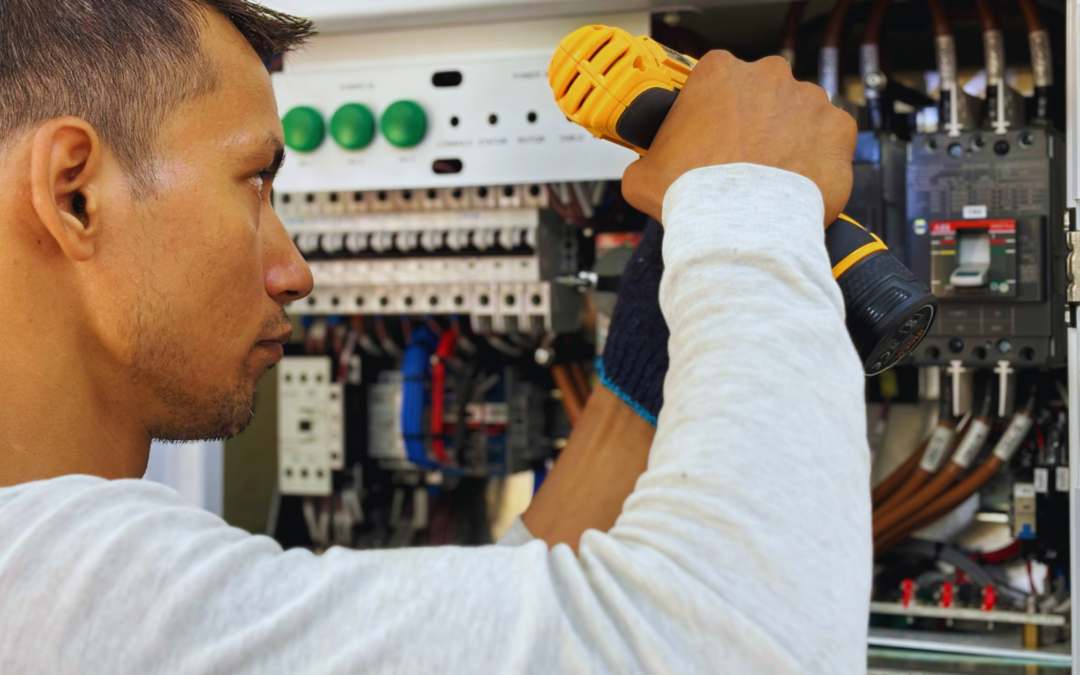The skilled trades are experiencing a renaissance, and electricians are leading the charge. As we approach 2026, the demand for qualified electrical professionals continues to surge across New Jersey and nationwide. This growing need presents an unprecedented opportunity for those considering a career change or entering the workforce.
Multiple factors are driving this trend. The rapid expansion of renewable energy infrastructure, increasing automation in commercial spaces, and the ongoing construction boom have created a perfect storm of opportunity. For New Jersey residents, this translates to stable, well-paying careers that can’t be outsourced or automated away.
Understanding why this demand exists—and how to position yourself to benefit—could be the key to securing your financial future in an increasingly uncertain job market.
Key Takeaways
- The electrician shortage is projected to worsen through 2026, with over 80,000 new positions expected nationally
- New Jersey offers excellent training programs and apprenticeship opportunities for aspiring electricians
- Starting salaries for qualified electricians in NJ average $55,000-$65,000, with experienced professionals earning $80,000+
The Perfect Storm: What’s Driving Electrician Demand
Infrastructure Modernization
America’s electrical grid is aging rapidly. Much of our current infrastructure was built 40-50 years ago and requires significant updates to meet modern safety standards and energy demands. New Jersey, with its dense population and industrial heritage, faces particularly acute infrastructure challenges.
This modernization isn’t just about replacing old wires. Smart grid technology, electric vehicle charging stations, and energy storage systems require specialized knowledge that today’s electricians must possess. The complexity of these systems means more hands are needed for both installation and ongoing maintenance.
The Green Energy Revolution
Solar panel installations have exploded across New Jersey, thanks to generous state incentives and falling equipment costs. Wind energy projects, both onshore and offshore, are adding to the workload. These renewable energy systems require skilled electricians for installation, maintenance, and grid integration.
Battery storage systems, essential for managing intermittent renewable energy, add another layer of complexity. Each installation requires certified electricians who understand both traditional electrical work and cutting-edge energy storage technology.
Construction and Development Boom
Despite economic uncertainties, construction activity remains robust throughout New Jersey. New residential developments, commercial buildings, and industrial facilities all require extensive electrical work. Data centers, driven by cloud computing and cryptocurrency mining, represent a particularly lucrative niche requiring specialized electrical expertise.
The trend toward smart buildings increases electrical complexity exponentially. Modern commercial spaces integrate lighting, HVAC, security, and communication systems in ways that require sophisticated electrical knowledge.
The Numbers Don’t Lie: Quantifying the Shortage
The Bureau of Labor Statistics projects electrician employment will grow 8% from 2022 to 2032, faster than the average for all occupations. This translates to approximately 80,400 new electrician positions nationally over the decade.
New Jersey faces particularly acute shortages. The state’s aging workforce means many experienced electricians will retire in the coming years, creating additional openings beyond new job creation. Industry estimates suggest New Jersey will need over 2,000 new electricians by 2026 to meet demand.
Current unemployment rates for electricians hover near zero in many New Jersey markets, indicating extremely tight labor conditions. This shortage drives up wages and improves working conditions as employers compete for qualified workers.
Financial Rewards: What Electricians Actually Earn
Starting electrician salaries in New Jersey typically range from $55,000 to $65,000 annually. Experienced electricians often earn $75,000 to $90,000, with specialized roles commanding even higher compensation. Master electricians running their own businesses can exceed $100,000 annually.
These figures don’t include overtime pay, which is common in the electrical trades. Many electricians earn 20-30% additional income through overtime work, particularly during construction booms or emergency repairs.
Benefits packages often include health insurance, retirement contributions, and paid training opportunities. Union positions typically offer the most comprehensive benefit packages, though non-union work may provide more schedule flexibility.
Your Path Forward: Training Options in New Jersey
Trade School Programs
Electrical school in NJ offers the fastest path to entry-level positions. Programs typically last 6-24 months and cover electrical theory, safety practices, and hands-on installation techniques. SJ Tech provides comprehensive electrical training designed to meet current industry standards.
Trade school graduates often transition directly into apprenticeship programs, giving them a head start over candidates without formal training. The structured learning environment helps students master complex concepts more efficiently than on-the-job learning alone.
Apprenticeship Opportunities
An electrician apprenticeship program in NJ combines paid work experience with classroom instruction. These programs typically last four years and provide the most comprehensive training available. Apprentices earn while they learn, starting at 40-50% of journeyman wages and receiving regular increases.
New Jersey’s strong union presence means many apprenticeship opportunities are available through local IBEW chapters. Non-union contractors also offer apprenticeships, often with more flexible scheduling for students balancing other commitments.
Continuing Education and Specialization
The electrical field evolves rapidly, requiring ongoing education to maintain certifications and stay current with new technologies. Many NJ trade schools offer continuing education courses in subjects like electrical code compliance, solar panel installation and other specialized areas.
Some electrical workers choose to pursue additional certifications in specific fields such as telecommunications or industrial control systems. Certifications can be earned through organizations like the National Institute for Certification in Engineering Technologies (NICET) or the International Association of Electrical Inspectors (IAEI). These certifications can increase job opportunities and earning potential.
Career Advancement
With experience and continued education, electricians in New Jersey have various opportunities for career advancement. They may become supervisors, project managers or even start their own electrical business. In addition, some electricians may choose to become teachers or trainers within the industry.
Conclusion
The demand for skilled electricians continues to grow in New Jersey, and with it comes a promising career path. Whether starting out as an apprentice or pursuing further education and certifications, electricians have the opportunity for job stability, competitive salaries, and room for advancement in this rewarding field. With a strong foundation of technical skills and knowledge, a career as an electrician in New Jersey can be both fulfilling and financially rewarding. So if you have an interest in working with electricity and creating safe electrical systems, then becoming an electrician could be the perfect fit for you!

